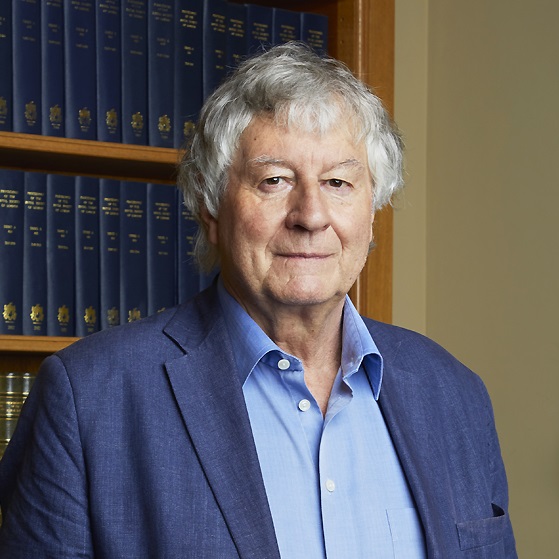In this first blog of a new series, Peter Finegold sets out the Royal Society’s key ask of political parties ahead of the next general election, and explains why education needs to be a policy priority for all parties.

“Things remain the same because it is impossible to change very much without changing most of everything.”
Ted Sizer (US Education reformer, 1932-2009)
Some elections are more noteworthy than others. The coming General Election has the potential to be memorable, a once-in-a-generation opportunity for the political parties to set out their vision for a post-Covid, post-Brexit, net-zero, generative AI-led future. The fragility of our school education system, exposed by Covid, exists alongside demands from employers and politicians for the skills necessary to achieve economic recovery and future growth. The temptation may be for us to let out a collective sigh of relief that the pandemic is over, but we don’t need to look too far to find other possible sources of disruption for which education is ill-equipped and unprepared.
The two 20th century World Wars provided the impetus for major structural reforms to state education in much of the UK. Global disruption, it appears, makes fundamental public service reform previously considered impossible, more palatable to policymakers. Whether the pandemic, Brexit or the climate crisis can realistically compare with the global events of a century ago, recent experience has highlighted vulnerabilities in an education system that many still see as too complex to change. All of which suggests that now may be a good time to fix the roof while the sun is still shining.
Education is arguably the most powerful policy lever a government has at its disposal to improve society, by providing the future skills for the economy, preparing young people for fulfilling lives and strengthening engagement with wider society. It is also a means by which politicians can communicate an optimistic vision for future generations. On this basis, The Royal Society is calling on all political parties to position secondary and post-16 education policy reform as a manifesto priority, both to help achieve stable economic recovery and to ensure that the next generation is ready to face an uncertain and challenging future.
Our education system has been described as a juggernaut: unstoppable, resistant to external efforts to shift its path, ancient and inflexible. All of which probably explains why recent efforts to reform have been modest, restricted to adjusting individual parts of the system. Covid, however, has shone a light on for example, the unequal access to digital resources, an overreliance on high stakes exams and excessive demands on a disillusioned stretched teaching workforce. Addressing any of these requires consideration of other elements of the system.
It is our view that whichever party forms the next government, it will need to face up to the fact that technology and society are moving quickly and leaving education to play catch-up. The choice they face is whether to carry out a major review of the entire system over the duration of the next parliament with a plan for implementation of reform by 2035 or to cross their fingers, leave things as they stand for a further decade and hope. A review should resist the temptation simply to fix current challenges but have as its starting point a set of questions that test the assumptions that we all share around the nature of our education system. It should also avoid starting with the content of ‘a curriculum’ or the exam structure, and instead seek to address the following higher order questions:
- What is education for?
- What do young people need to know and to do?
- What is the future role for teachers and how can the status of teaching be improved?
- How to nurture the skills essential to thrive in the face of a complex and uncertain world?
- What should schools be measuring, for what purpose and for whom?
The Royal Society has long advocated for change, initially through the publication of its ‘Vision for science, mathematics and computing education’ report. In 2014 the Society stated how the narrow A-level dominated system forced young people to abandon a broad range of skills at the age of 16. Ten years on little has changed with an average of only 2.7 subjects studied at A level.
More recently the Society published the views of the leading thinkers from different sectors in its Envision series. The inspirational articles prove that there is strong support for a broader education. An acknowledgement that this narrowness is neither good for the UK economy nor for individuals emerged in the Conservative Party’s leadership campaign in summer 2022, during which Rishi Sunak advocated the introduction of a baccalaureate to replace A levels. Though this call has morphed into support for maths-to-18, some see the mathematics initiative as a pathfinder towards a broader curricular offering, whilst others suggest that unless implemented as part of a wider reform, the laudable ambition cannot succeed.
Support for improving the education system and preparing young people for the future exists across all the political parties, which is why the Royal Society has added its voice to many influential individuals and organisations calling for cross-party cooperation in the review phase and then agreement to support implementation subsequently.
The time is now right to carry out a fundamental national review. While the next government will, and should, have its own thoughts on where the focus of such a review should lie, the Royal Society is producing a series of short blogs designed to provoke thought and discussion, of which this is the first.
In the lead up to the General Election, the Royal Society will continue to engage with a range of interested parties including policymakers to explore the potential of an education review in the next parliament.





